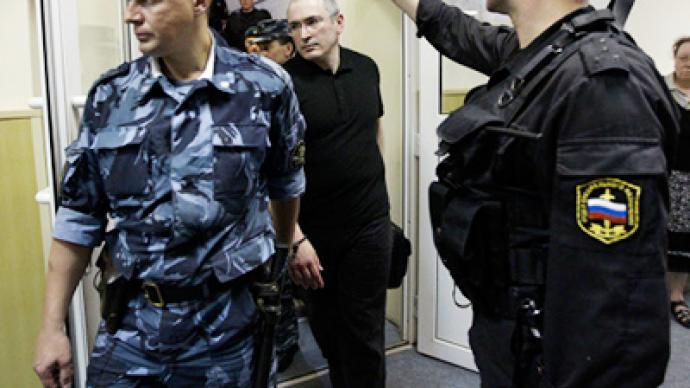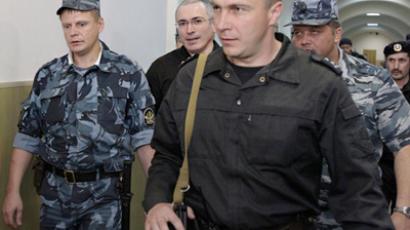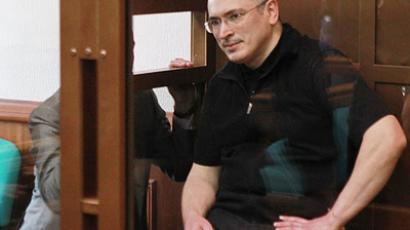Court finds no politics in Khodorkovsky case

The Moscow City Court has rejected claims that the case of the former Yukos head Mikhail Khodorkovsky and his partner Platon Lebedev was politically motivated. It also refuted allegations that the defendants were tried twice for the same crime.
“We did not find any such [political] motives,” said chairman of the Cassation Board Vladimir Usov during a news conference on Tuesday. He added that he does not believe claims by the former judge Viktor Danilkin’s aid Natalya Vasilieva that it was not he who drafted the verdict for Khodorkovsky and Lebedev. “All speculations around the verdict are a provocation,” he stressed. Usov said that an investigation following Vasilieva’s statements did not reveal any violations of the law or prove there had been any falsification. So there are no grounds for launching a criminal case against Judge Danilkin. “We have not discovered any discrepancies in the verdict,” Usov went on to say. “The verdict was written by a professional- all reasons and motives are reflected in it.” He also noted that no pressure had been exerted on the Khamovnichesky Court which issued the sentence. Earlier, Natalya Vasilieva had claimed that it was written by the higher Moscow City Court and delivered there. The Cassation Board of the Moscow City Court also rejected claims that Khodorkovsky and Lebedev were tried and sentenced twice for the same crime.“It is legally incorrect to say that they were sentenced twice for one crime,” said board member Elena Arychkina. “There were two different verdicts as Khodorkovsky and Lebedev were sentenced for different crimes.” During the trial the defense repeatedly pointed out that in the first case, the former Yukos CEO and his partner were found guilty of tax evasion, while in the second case they were charged with stealing oil. Their lawyers said there was no logic in paying taxes for something stolen. Arychkina observed that the Meshchansky Court (the one that delivered the first sentence) “did not establish that the taxes were not paid from the stolen oil.” At the end of May the European Court of Human Rights (ECHR) in Strasbourg also concluded that there was no political motivation in the first Yukos case. “The European Court of Human Rights held, unanimously, that there had been… no violation of Article 18 (limitation of rights for improper purposes) as regards the claim that his prosecution was politically motivated,” the Chamber judgment reads. At the same time, the ECHR found violations in the conditions of Khodorkovsky’s detention in the remand prison after August 2005, as well as a number of procedural flaws, and ruled that Russia must pay Mikhail Khodorkovsky 24,500 euros. Last December, in the second Yukos case, Khodorkovsky and Lebedev were found guilty of embezzlement and money laundering and sentenced to 13.5 years each in a penal colony. The six years they have already spent in prison are to be subtracted from the total sentence. In May the Moscow City Court revised the sentence and cut the term by one year, thus moving the date of their release from 2017 to 2016. During Tuesday’s news conference, Vladimir Usov explained the sentence review had resulted from legislative changes.














